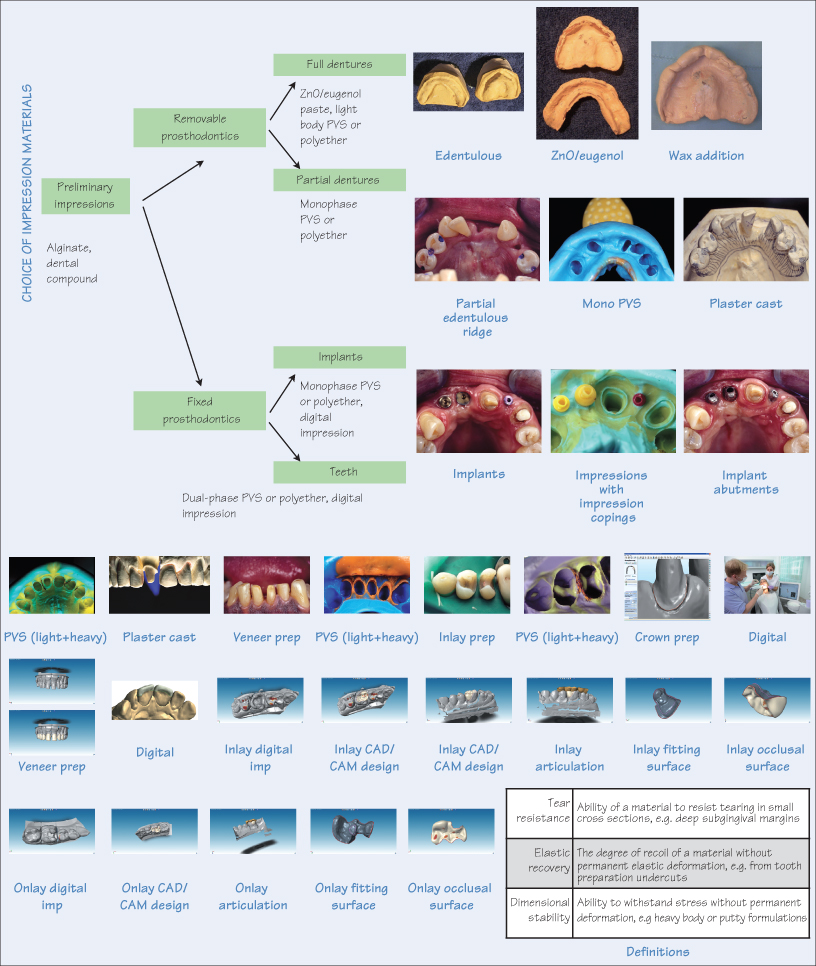39
Impression Materials

Impressions are required for fabricating indirect restorations and indirect prostheses. The choice of impression material depends on the type of prosthesis. While some materials have multiple uses, predictable and precise impressions are achieved using specific materials for removable and fixed prosthodontics. Regrettably, substandard impressions are often accepted by clinicians in the expectation that the dental technician can ‘fake and make’ missing or inadequate details of intra-oral anatomy. Precise and accurate impressions are challenging and require knowledge of:
- Impression materials (this chapter);
- Impression techniques and armamentarium (Chapter 40);
- Soft tissue management (Chapter 41).
Many impression materials used in dentistry since the 1950s are now archaic or redundant, including plaster, polysulphides (rubber base), reversible hydrocolloids and condensation silicones. However, a minority of older-generation or esoteric clinicians still find use for these materials. The impression materials discussed below are the most popular in contemporary prosthodontics.
Dental Compound
Dental compound is a thermodynamic material that softens with heat and sets to a rigid consistency in the oral cavity. Due to its thermodynamic behaviour, additions or corrections are relatively easy. However, its low strength and brittleness are drawbacks, often causing breakage, and uses include customising stock trays, preliminary impressions for full dentures, or supporting areas of deep sulci and edentulous ridges.
Zinc Oxide Eugenol Paste
The use of zinc oxide/eugenol paste is exclusively for tissue-supported removable full dentures (RPD). The material’s enduring property is that it does not displace soft tissues of edentulous ridges, or buccal sulci, thus avoiding pressure spots on fitting surfaces, and overextended buccal flanges, respectively. Furthermore, voids can read/>
Stay updated, free dental videos. Join our Telegram channel

VIDEdental - Online dental courses


